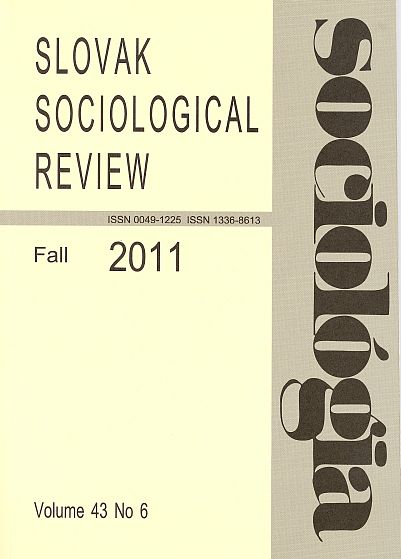Úroveň znalostí o Islámu a vnímání Islámu mezi českými a slovenskými univerzitními studenty: souvisí znalosti se subjektivními postoji?
The Level of Knowledge about Islam and Perception of Islam among Czech and Slovak University Students: Does Ignorance Determine Subjective Attitudes?
Author(s): František Novosád, Filip PolonskýSubject(s): Social Sciences
Published by: SAV - Slovenská akadémia vied - Sociologický ústav
Keywords: attitudes; Muslims; Islam; knowledge; prejudice
Summary/Abstract: The Level of Knowledge about Islam and Perception of Islam among Czech and Slovak University Students: Does Ignorance Determine Subjective Attitudes? In this article, we examine existing levels of knowledge about Islam and other characteristics of respondents in regard to attitudes towards Islam and anti-Muslim prejudice. The analysis uses expectations derived from the integrated threat theory and inter-group contact theory when drawing on a questionnaire survey conducted among 716 university students interviewed in seven Czech and Slovak cities. Our results showed that the level of knowledge about Islam is negatively associated with perceived threats (such as fears of Islamic terrorism, and perception of problems with integration of Muslims into Czech/Slovak society) and, indirectly through the latter, with prejudice against Muslims. The analysis also confirmed some other (statistically more important) correlates of both perceived threats and anti-Muslim prejudice. These are personal contacts with Muslims and the Islamic world that are associated with more positive attitudes and affiliation to a church which is associated with more negative attitudes towards Islam. Sociológia 2011, Vol. 43 (No. 6: 674-696)
Journal: Sociológia - Slovak Sociological Review
- Issue Year: 43/2011
- Issue No: 6
- Page Range: 674-696
- Page Count: 23
- Language: English

